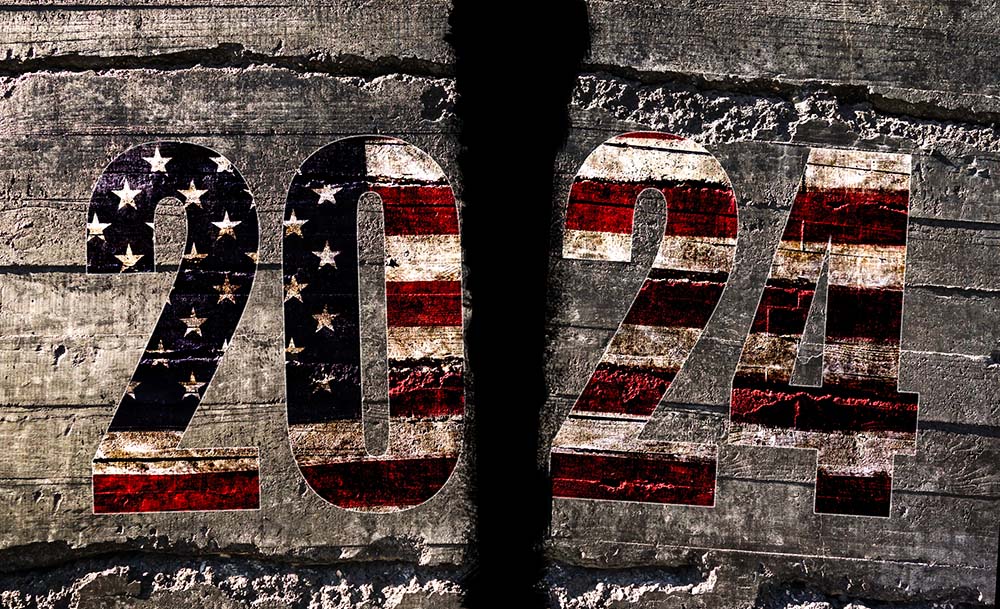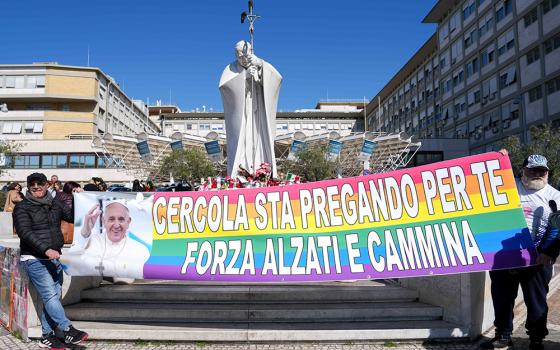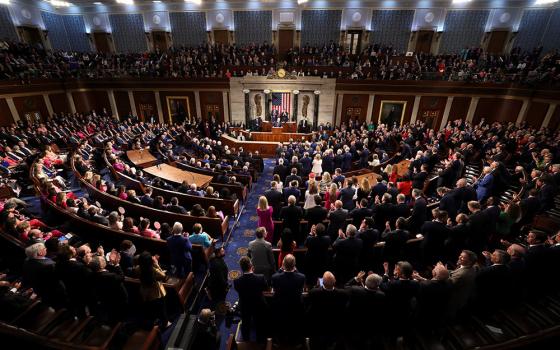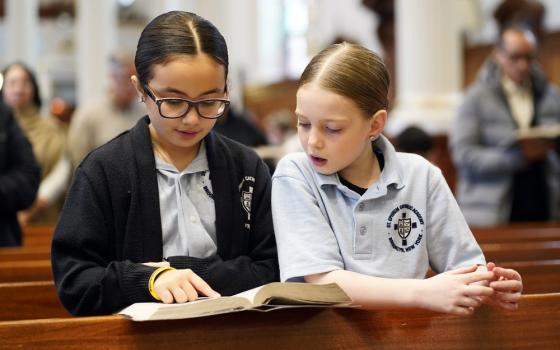
(Dreamstime/Zimmytws)
Polarization is Merriam-Webster's word of the year. If we learned anything about the politics of the nation in 2024, it is that we are more polarized than ever.
All year, it was tempting to write about the unfolding events in politics as if it were the first chapter in a book about the end of the American experiment. All empires come to an end, and maybe the American empire's time has come.
Still, that verdict seems premature. America in 2024 is not Germany in 1933, or Italy in 1922. Our democratic traditions run far more deeply. Our constitutional framework still contains points of resistance.
There are worrying signs to be sure, and Disney's decision to settle a lawsuit Donald Trump filed against ABC News for defamation is among the most worrying. On the other hand, GOP senators succeeded in blocking the accession of Matt Gaetz to the office of attorney general.
Trump dominated the American political zeitgeist in 2024, just as the statue of the Greek god Helios stood astride the harbor at Rhodes. Trump was not only master of the scene, but his mastery ranked him among the most effective politicians in modern American history. No one in recent U.S. history has overcome greater liabilities to win the White House, and to win it convincingly.
Ronald Reagan and Barack Obama, for all their differences, both connected with the hopes of the American people. Trump connects with their fears, but he connects nonetheless. Despite being a convicted felon, he connected. Despite his moral responsibility for the assault on the Capitol on Jan. 6, 2021, he tapped into the American people's anxieties and exploited them. Despite a slew of other indictments, Trump became the first Republican presidential candidate to win the popular vote in 20 years, and only the second since 1988.
All year long, Trump ran as the anti-politician and it worked. Other politicians would get tripped up on the various inconsistencies of his policy proposals. His penchant for saying outrageous, and outrageously ugly, things would end a normal politician's career. It never harmed him. It only confirmed the Trump brand.

A supporter of Republican President-elect Donald Trump celebrates at his victory rally at the Palm Beach County Convention Center in West Palm Beach, Fla., Nov. 6, 2024, after Trump was elected the 47th president of the United States. (OSV News/Reuters/Carlos Barria)
He may be the most dangerous American since Sen. Joseph McCarthy or Charles Lindbergh, yet he manages somehow to be liked by many and even idolized by some.
Even those who detest him were forced to define themselves in terms of their relationship to him. Vice President Kamala Harris spent much of her campaign, and most of the closing ad buys, talking about Trump, not herself, the threat he posed rather than the promise she offered.
It is not clear exactly how the Catholic vote shifted in 2024. The same pollsters who told us the race was exceedingly close are the ones telling us how Catholics voted.
Actual vote totals, however, are hard data. The Morning Call analyzed 10 precincts with significant Latino populations in two Pennsylvania counties, Lehigh and Northampton. The percentage of Latinos in those precincts varied from one-third in Freemansburg to Allentown's eighth ward, sixth district, which is nearly 80% Latino. Trump improved his margins over 2020 in all 20 precincts.
The Democrats were hobbled first by an incumbent president who had achieved many policy victories, but failed to convince the American people that those legislative achievements were improving their lives. President Joe Biden thought he could run on his record, and maybe the result would have been different if he stayed in the race. It is a counterfactual, so it is impossible to know. He looked old and tired, and it is hard to see how more campaign stops and a second debate might have made him look young again.
Harris was catapulted to the top of the ticket, but had not fine-tuned her campaign pitch during a hard-fought primary. The Democratic Party, as a whole, had not wrestled with its identity, which is the great benefit of a primary contest. It is noteworthy that two members of the ultra-progressive "Squad" lost their bids for reelection in the Democratic primaries, with Jamaal Bowman losing in New York and Cori Bush losing in Missouri.
House Democrats got the message. On Dec. 17, they selected veteran Rep. Gerry Connolly of Virginia to serve as the top Democrat on the House Oversight Committee over Rep. Alexandria Ocasio-Cortez of New York by a vote of 131-84. Democrats also selected Minnesota Rep. Angie Craig to be ranking member on the House Agriculture Committee. Part of Craig's pitch was that she would be the only ranking member from a non-coastal state.
Two issues that are especially associated with Catholics played a significant role in 2024: abortion and immigration.
Ten states had referendums on abortion rights. In seven states, the abortion-rights side prevailed, and in 3 states, the anti-abortion side won. Voters tend to support abortion rights when they face the issue squarely in a referendum, but it is not a winning issue for either abortion-rights or anti-abortion candidates because most voters make up their minds on other issues. Besides, this year, transgender rights seems to me to have replaced abortion as the leading issue in the culture wars.
Advertisement
Immigration has become a different kind of totem, one that harkens back to some of our country's uglier historical moments. For the past four years, conservative media have harped on the issue.
When Trump wasn't blaming Biden and Harris for the shaky economy, he was blaming immigrants, as was his sidekick, Vice President-elect, and Catholic convert, JD Vance. The main economic problem confronting most voters, inflation, is not impacted an iota by immigration. Trump made immigrants a scapegoat nonetheless.
It is remarkable to me that the two issues, abortion and immigration, which unite something like nine out of 10 U.S. bishops, are matters on which the church has lost whatever influence it once had. More on that Monday, when we undertake a year-in-review look at the church.
The American people have good reasons to be angry about the political leadership of the past several decades, and that anger drove American politics in 2024. The war in Iraq, followed by the economic meltdown of 2008, highlighted the limits of expertise, political and otherwise. The working class continues to struggle, economically and culturally.
Neither party showed much of an appetite for overcoming polarization, and so the politics of the center did not hold. It is sad and shocking that a charlatan like Trump successfully made himself the vehicle for popular anger, but it is not surprising.
As 2024 comes to an end, there is so much we do not know. But we do know this: Our politics reflects some deep divisions within our society, and the only answer that politics achieved in 2024 was a weak and dangerous one. The American people bet that Trump will fix things. But will they like Trump's fixes?







